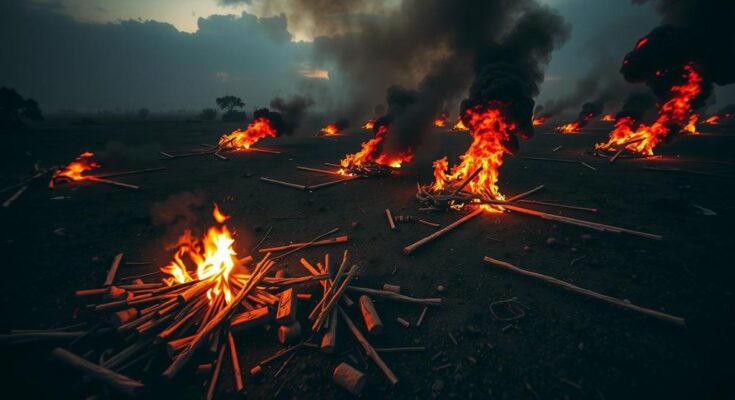United Nations Secretary-General António Guterres warns of escalating violence in Sudan, with foreign powers exacerbating the situation. The ongoing conflict has resulted in over 24,000 deaths and displaced 11 million people, creating a humanitarian disaster. Guterres calls for an immediate end to hostilities and for both sides to protect civilians and allow humanitarian aid.
The ongoing armed conflict in Sudan, characterized by escalating violence between military and paramilitary forces, has reached alarming levels, with foreign powers allegedly exacerbating the situation, according to United Nations Secretary-General António Guterres. During a briefing to the U.N. Security Council, Guterres expressed deep concern that the 18-month war could provoke regional instability stretching from the Sahel to the Horn of Africa and the Red Sea. The humanitarian crisis is dire, with millions suffering from severe hunger and disease. The Secretary-General highlighted that the Sudanese populace, besieged by a plethora of horrors, faces rampant killings and widespread sexual violence. He pointed to recent reports detailing mass killings and rapes in the Gezira province, following a violent incursion by paramilitary forces that resulted in over 120 fatalities in a single locality. Since the onset of conflict in mid-April 2023, triggered by a power struggle between military leaders and their paramilitary counterparts in Khartoum, more than 24,000 individuals have reportedly lost their lives, marking this as one of the most severe humanitarian crises globally, displacing upwards of 11 million people. Guterres emphatically called upon the opposing factions to agree to an immediate cessation of hostilities and to prioritize the safety of civilians, acknowledging their primary responsibility to ensure humanitarian assistance reaches those in urgent need. He expressed particular distress over the ongoing assaults on civilians in regions such as North Darfur and the indiscriminate airstrikes in populated areas, denouncing these as violations of international humanitarian law. The conflict emerged following a 2019 pro-democracy uprising that ousted longtime dictator Omar al-Bashir, plunging Sudan into unrest characterized by atrocities reminiscent of the genocidal violence seen in Darfur two decades prior. The International Criminal Court has indicated that it has grounds to investigate potential war crimes, crimes against humanity, or genocide by both warring factions in this renewed turmoil.
The current conflict in Sudan has its roots in the power struggle that erupted after a pro-democracy uprising in 2019 led to the removal of longtime dictator Omar al-Bashir. Following this change in leadership, Sudan briefly transitioned towards democracy before reverting to conflict as military and paramilitary leaders vied for control. The violence that has ensued since April 2023 has escalated sharply, with grave implications for civilian populations and international stability. With the historical context of Darfur’s past violence and atrocities in mind, the situation has aroused significant international concern, especially given reports of ongoing human rights abuses, including mass rape and ethnic violence, that echo the region’s tragic past.
In summary, the conflict in Sudan presents a worsening humanitarian crisis with severe implications for both local populations and regional stability. The United Nations Secretary-General has called for immediate cessation of hostilities and highlights the critical need for the protection of civilians amidst ongoing violations of international law. The historical context of the region raises concerns regarding potential war crimes, as the situation deteriorates further and millions suffer from violence, famine, and disease.
Original Source: www.africanews.com




